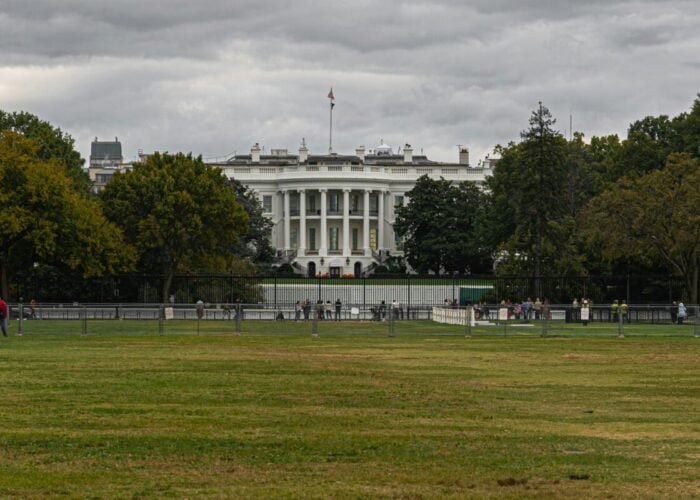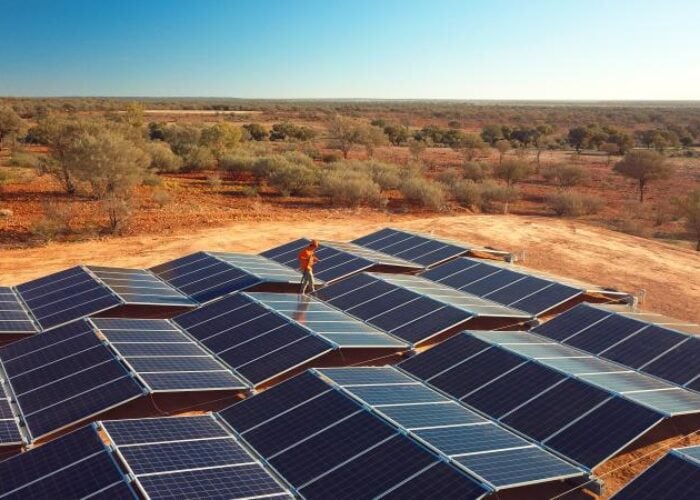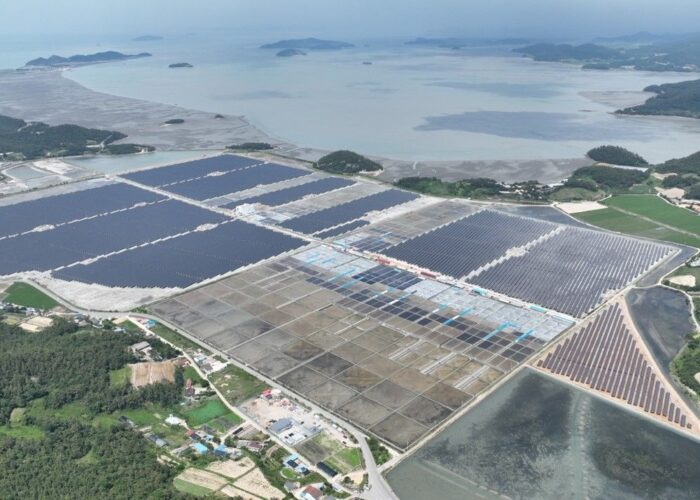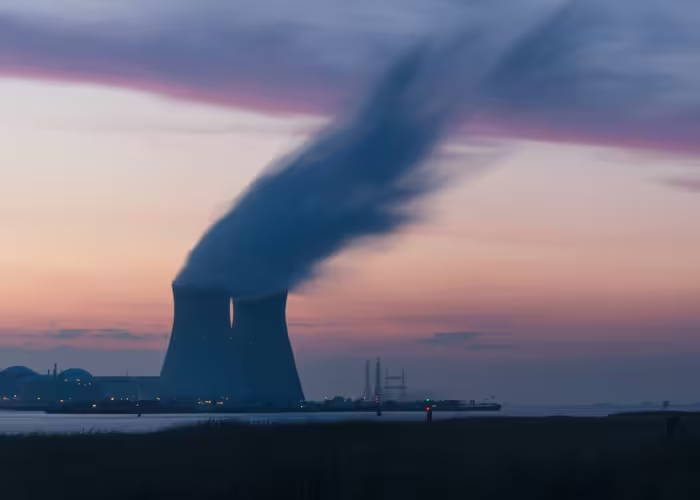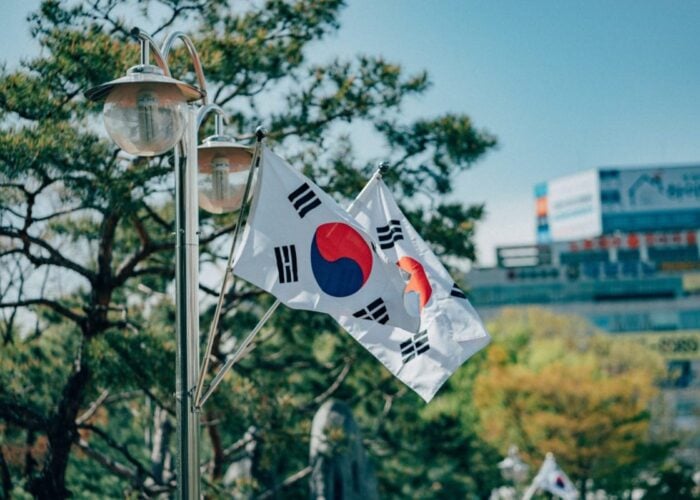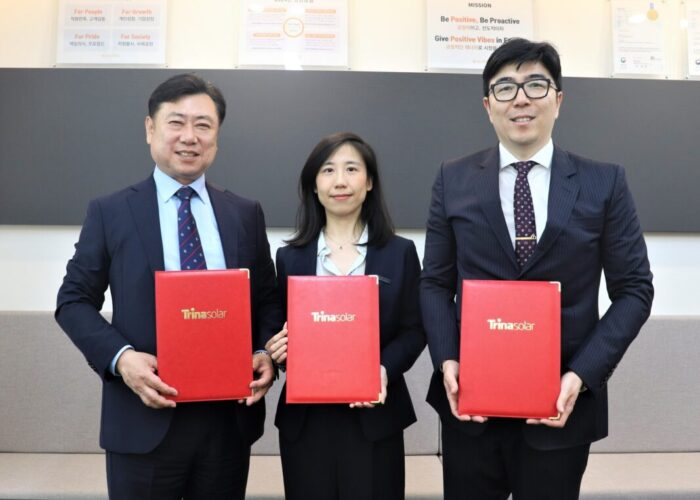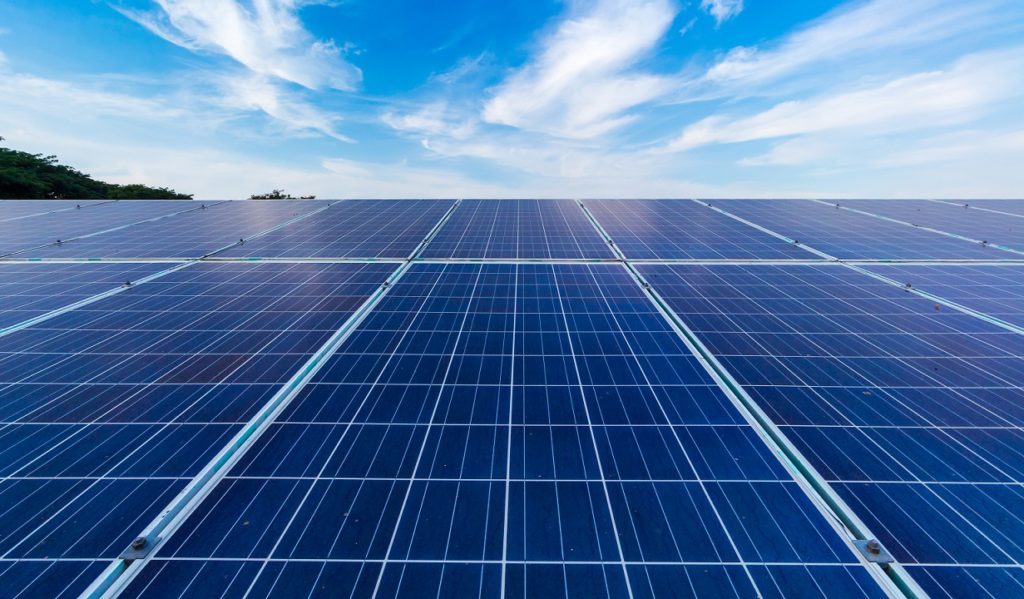
South Korea is planning to change its renewables targets as part of a host of energy policies from the country’s new government, which aims to increase the role of nuclear power.
Renewable energy supply goals “must be reestablished in consideration of rational and realistic supply conditions”, the country’s ministry of trade, industry and energy said in a strategy document published today (link in Korean).
Unlock unlimited access for 12 whole months of distinctive global analysis
Photovoltaics International is now included.
- Regular insight and analysis of the industry’s biggest developments
- In-depth interviews with the industry’s leading figures
- Unlimited digital access to the PV Tech Power journal catalogue
- Unlimited digital access to the Photovoltaics International journal catalogue
- Access to more than 1,000 technical papers
- Discounts on Solar Media’s portfolio of events, in-person and virtual
While it didn’t reveal new deployment targets for solar and wind, an industry ministry official told Reuters that renewables’ share in the country’s energy mix will be “realistically adjusted to below 30%” by 2030, compared with 6.3% last year.
Under South Korea’s most recent Basic Plan for Electricity Supply and Demand for 2020 – 2034, renewables are due to account for 41.9% of the country’s power capacity by 2034.
The ministry also said it aims to boost exports of new energy industries and target the commercialisation of technologies such as tandem solar cells.
In terms of the grid, key goals include the timely construction of new infrastructure as well as system stabilisation measures aligned with renewable energy generation.
Replacing the previous administration’s nuclear phase-out strategy, the new government’s energy policies include plans to resume construction work on two nuclear reactors and have nuclear power providing more than 30% of the country’s electricity generation by 2030.
Amid the global push toward carbon neutrality, the Russia-Ukraine conflict and energy supply chain uncertainties, energy security and attaining carbon neutral goals “are now more important than ever”, the industry ministry said in a statement.
“In response to these changes, it is imperative that new energy policy goals and directions are set so as to better accomplish carbon neutral government projects and the expansion of nuclear power.”
South Korea is aiming for 34GW of installed solar by 2030 as part of its basic electricity supply plan, according to research firm Wood Mackenzie, which said last year the country could be more ambitious with its 2030 renewables capacity target.
Recent announcements in South Korea’s PV sector include conglomerate Hanwha Group revealing plans to invest US$3.3 billion in clean energy manufacturing and establish a solar research and development hub in the country.

